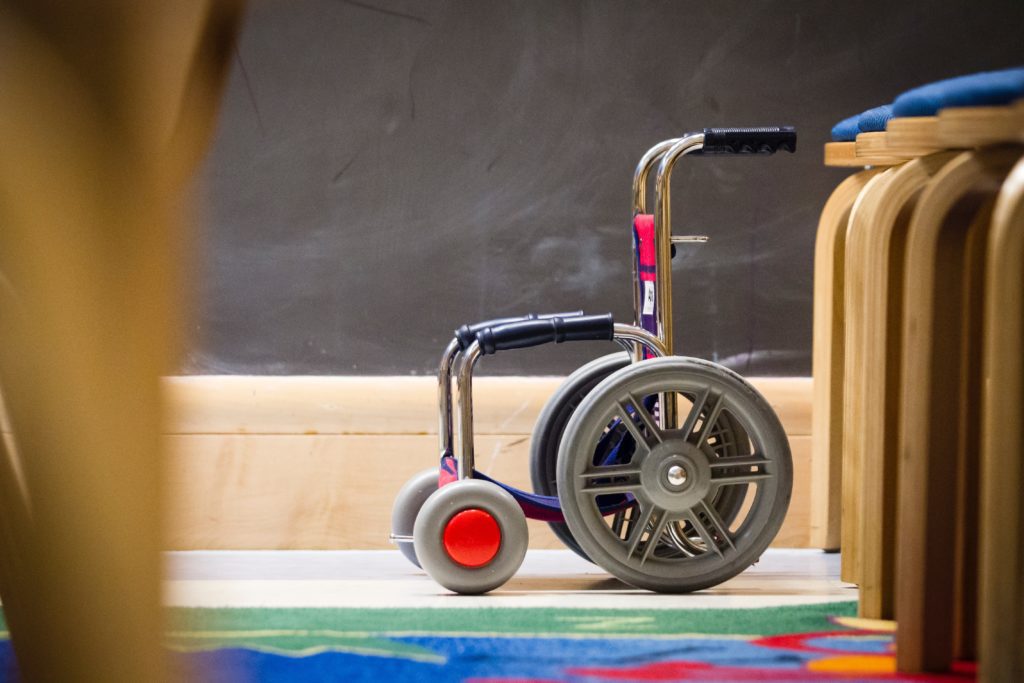⏱️ Estimated Reading Time: 8 min read
It started out with mild inconveniences. Curious sudden rashes, red eyes, and loss of appetite. But it quickly escalated into something we couldn’t put our finger on. Our daughter was experiencing new, painful symptoms on a daily basis, and the doctors could not put their finger on the cause. When it became clear that her body was having a severe medical problem—something more than could be ascribed to a general virus—my husband and I realized we were up against something far more significant. Something life-changing.
Her bloody vomit made that extremely clear.
After a week-long stay at the hospital, our daughter was officially diagnosed with a self-limiting autoimmune disorder—meaning that the disease would eventually run its course and resolve on its own. For some reason doctors don’t fully understand, her body was triggered to attack itself, and the “treatment” was symptom-management. Indeed, she would need to endure the swelling and the rashes and the inability to eat for a period of months. Some days, she couldn’t get herself out of bed. She lost nearly 20 lbs. in a matter of weeks. There was nothing we, as parents, could do. This was a road she was being forced to go down, and we could not make it easier for her.
Her panicked crying made that extremely clear.
It’s disorienting when a child is suffering. Our parental instinct is to come to our children’s rescue and “make it better.” But life lived in a fallen world means that we cannot always protect our children from disease and death. Money and medicine has its limitations. The truth is that our children are not immune to experiencing the effects of the curse on this world, which means they will look to those charged with their care for comfort, hope, and help when suffering strikes.
A Call to Soul Care
Beyond our responsibility to collaborate with doctors for the purposes of alleviating physical suffering when feasible, parents are also given the task of being spiritual first-responders. While walking a child through suffering exposes the many ways we are unable to help, administering biblical soul-care is something within our power to do (1 Thessalonians 15:4).
Proverbs 18:14 NLT says, “The human spirit can endure a sick body, but who can bear a crushed spirit?” This proverb suggests that spiritual hopelessness—not physical sickness—is the biggest threat a person faces when suffering affliction. Salvation in Christ must first come by being born again in the Spirit (John 3:5-7)—only then is the assurance of future bodily resurrection and glorification obtained (John 6:40, Philippians 3:20-21). Thus, physical suffering is a prime opportunity to point our children to both the necessity and preciousness of the completed work of Jesus Christ, who secures the soul through his salvation and ensures the hope of eternal life after death in a glorified, radiant body—forever free from sin, decay, and death.
Parents of suffering children are positioned by God to be conduits of his comfort and grace, both in word and deed (2 Corinthians 1:3-4). This means engaging our children in conversations about their questions and concerns over what is happening to them, and thoughtfully injecting biblical truths about the promise of God’s presence in the midst of their pain. More often than not, this season will yield opportunities for evangelism. Therefore, it is a parent’s high-calling to share the gospel while inviting their children to place their hope and trust Jesus, who experientially knows the pain of their agony and promises to walk with them through it.
The Importance of Modeling Trust
Children are perceptive. How a parent leans onto the Lord in during this time speaks volumes about the value of our hope in Christ. What does it mean that God is a very present help in times of trouble—that he is our refuge and strength when the world is falling apart (Psalm 46:1-2)? It doesn’t mean painting on a smile, or sporting a worry-free facade, or hushing any mention of undesirable outcomes. It doesn’t mean making promises that we don’t have the power to keep. It does mean, however, that we ask hard questions through prayer and engage our overwhelming emotions with scriptural truths.
Psalm 62:8 NIV reads, “Trust in him at all times, you people; pour out your hearts to him, for God is our refuge.” It’s important for our children to see that trusting the Lord doesn’t mean a stoic countenance in times of hardship—it means we are constantly pouring out our thoughts and feelings to him. Faith that weeps while it waits on God for help isn’t weak. A believer who engages the Lord through lament is not someone modeling distrust in the Lord (Psalm 13). When our child is suffering, parents can communicate that faith in Christ is a trustworthy anchor for our souls (Hebrews 6:19), and that the Bible is our source of sustaining grace for the day—that through the encouragement found in the Scriptures, we might have hope (Romans 15:4).
Part of modeling this trust means we constantly invite our children to pray with us and talk to God. Even if they are shy about praying aloud for themselves, we pray aloud for and with them, teaching them how to bring their laments and petitions to the Lord. We model what thanksgiving looks like in the midst of illness by expressing gratitude for evidences of grace we see during the day. We invite our children to think of other people who are hurting and we intercede in prayer for those who come to mind. In all things, we continue to point our children back to the character and promises of our Father in heaven: he is near to the brokenhearted (Psalm 34:18), and he will help us in times of trouble (Isaiah 41:10).
Wooing Our Children to Heaven
It’s understandable that parents would feel helpless when their child is suffering. While we cannot always alleviate their physical ailments, we can, by God’s grace, answer the call to steward their spiritual care and woo them to Jesus with talk of eternity.
Parents should consider how they’re communicating about death to their children: is it something to be avoided at all costs—something unmentionable?—or is it the inevitable journey for all born into a world under the curse of the Fall? Do we behave as though death is the bitter end of the story, or the beginning of something far greater than we could ever imagine? When was the last time we even bothered to imagine about the glories of Heaven and what it will be like to meet Jesus face-to-face? If we’ve never had this kind of discussion with our children, there’s no better time than this season of suffering to get started.
These can be hard conversations to have. Yet, parents can take the divinely-ordained opportunity to convey an invaluable truth: the way we courageously face future uncertainties is by trusting the One who offers us a certain future with him. By using our imagination, we can dream of Heaven with our children. What would a world look like without decay and disease? What’s the first thing they would want to do in their glorified body? What is a skill they would love to learn when physical limitations are no longer a concern? Is there someone they are hoping to see, or a question they want to ask Jesus upon their arrival?
2 Corinthians 4:16-18 encourages, “Therefore we do not lose heart. Though outwardly we are wasting away, yet inwardly we are being renewed day by day. For our light and momentary troubles are achieving for us an eternal glory that far outweighs them all. So we fix our eyes not on what is seen, but on what is unseen, since what is seen is temporary, but what is unseen is eternal.” This kind of heaven-mindedness is not inherent. It goes against our notions of what human flourishing looks like. However, times of tribulation are chances to escort our children to the throne of grace, to practice what it means to fix our eyes on the glorious unseen.
We are jars of clay, and when our children are suffering from disease or illness, we feel the shockwaves of this reality in our souls. While it’s right to be grateful for the common grace of medical advances, we understand that there is an element of our child’s treatment only the Great Physician can tend to. These broken bodies will fail us—if not today, then eventually (Psalm 73:26). Still, the good news of Jesus Christ beckons us to look past our present pains to his eternal realities.
The biblical discipleship of our children through their suffering is not a luxury—it’s a parental responsibility. Our children need help understanding their need for Christ and the hope he offers them in their affliction. As much as we yearn and pray for the relief of their physical suffering, followers of Christ know there’s something more urgent at stake: the state of their child’s soul before a holy, just, and righteous God. Above all else, let us pray that our children would come to make Jesus Christ their refuge, Lord, and Savior as they wait for healing to come—whether in this life, or the next.
Editors Note: If you enjoy this article, we encourage you to check out Christine’s book, Help! My Teen is Depressed (Shepherds Press, 2020).




